Existing User Log In
New User Registration
Register for a free account to gain full access to the VGChartz Network and join our thriving community.



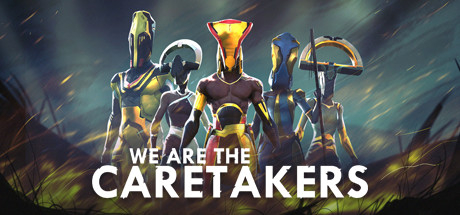

America - Front
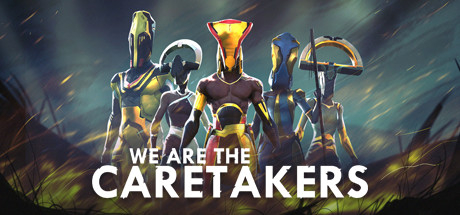

America - Back

Heart Shaped Games LLC
Role-Playing
 (Add Date)
(Add Date) (Add Date)
(Add Date) (Add Date)
(Add Date)
| Owners: | 0 |
| Favorite: | 0 |
| Tracked: | 0 |
| Wishlist: | 0 |
| Now Playing: | 0 |
Reviewer's Note: All of my time with the game is based on Version 1.1.
It’s always a shame when you can tell earnest concepts will fall quite short of their potential. We Are The Caretakers starts showing little foibles when you’re tweaking anything in the basic options menu: oddly misaligned UI arrows and being forced to scroll up to the discreet back button, rather than simply hitting B. These are indeed nitpicks, but they also raise suspicions of it potentially leaving Early Access too soon – and it doesn’t stop with those issues either. It’s especially disappointing when Heart Shaped Games’ inspired ideals, like incorporating conservationist themes within the game, consistently stumble.
Having ascended to the role of Conductor, you and the rest of your band are charged with protecting the endangered Raun (this universe’s rhinos) from poachers. After The Caretaker’s expansive energy shield is downed, that ultimate goal of conservation practically encompasses the entire globe; and with that, different types of adversaries to defeat.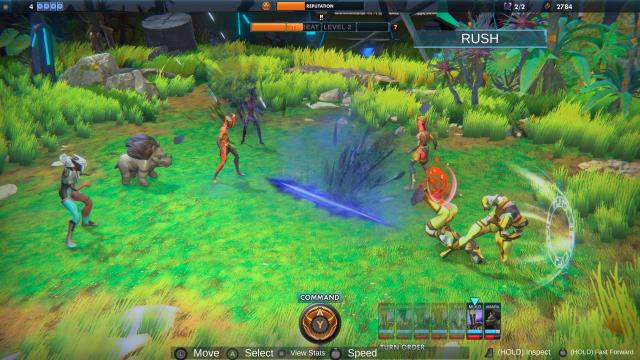
In essence, you’re basically a group of sci-fi park rangers in afro-futurist Warframe attire. As you’re sauntering through the quasi-African plains, scouting new pieces of the map, and collecting scattered tech, you’ll eventually happen upon roaming enemies. Once in their vicinity, the zoomed-out map transitions to a standard turn-based RPG: serried ranks of soldiers looking face-to-face. Each party member, friendly and enemy, has one move per round that can vary between offensive and defensive. Routine stuff, really.
Where Caretakers delineates is through intention. This team won't kill its enemies but rather bring them to justice. Health is forgone for a dual stamina/willpower meter; either one dropping to zero leaves enemies and allies susceptible to a final blow. Said knockout will vary from wounding to even outright bribing, depending on the class. That split between physical or social attack is an interesting theme to tie in with poaching too, especially since it’s possible to accomplish a full pacifist run across the battlefield and theoretical courtroom.
That duality is the cornerstone of Caretakers; it informs team composition between multiple units, what types of attacks to emphasize, and which tasks to prioritize between each team. Once you’ve internalized that nuance, it’s admittedly a basic structure; and yet, it captures a nice tempo. It’s fun to mix ‘n match teams. Perhaps too many party members focus-fire an enemy’s stamina, eventually forcing you to run away thanks to willpower-focused AoE strikes. Too many unit healers can lead to a laggard standoff. And since you’re able to recruit former poachers, it’s a nice touch to see your team actively reforming people to fight for a greater cause.
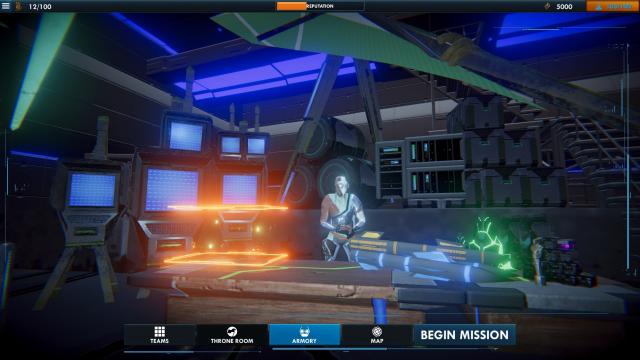
Despite a modest skeletal framework, the final result is a bit ugly once the flesh goes on. It’s not fun to harp on a small team’s lacking presentational values, but it’s unavoidable when visual flair could’ve contributed to these tactical bouts. Plus, it robs the eye-catching Afro-futurist designs of that extra pop. The special inspiration of sci-fi with various tribal garbs doesn’t receive the same attention elsewhere. Once you’ve eventually loaded into the main HQ (the longest load times I've experienced for a 9th-gen game thus far), it’s nothing more than a characterless selection of menus. It’s one thing to have sub-par technical graphics on a constrained budget - totally understandable in fact - but it’s something else when this creative visual template isn’t used to its fullest.
Adding onto the qualities that suggest premature Early Access departure, assorted hiccups and bugs can grab your attention too often. For starters, investing in the upgrade tree requires consistently jamming the control stick left or right to scroll through options, instead of being omni-directional like everything else. Secondly, there’s a modest cluster of humorous pathfinding and fighting bugs: a unit constantly walking in a circle on the tactical map, enemies that’ll spawn off-screen (but can fortunately still be hit), and other visual/audio issues. Finally, one of the more pernicious glitches stems back to Caretakers’ odd save system. Since all profile saves are exclusively reserved at HQ, any game freezes on the battleground demand you restart the mission. I couldn’t even capture one specific town on the last level because it consistently soft-locked me out of skipping a dialogue box, forcing me to just avoid it altogether.
These types of critiques on the margins are so pervasive because of how much they distract from an otherwise workable structure. Sure, there’s room to expand enemy, objective, and class variety; certain classes only have one specialization, for example. And for a title that took 7 hours to complete (including restarts), it does start running on fumes. Still, the foundation feels substantial. After learning the basics, it’s rewarding to heuristically uncover unstated trade-offs and internalize that knowledge for the next fight. It’s just a shame how often Caretakers' mismanaged execution gets in the way.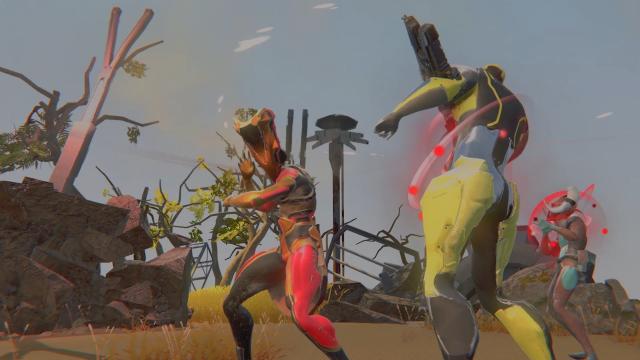
While this genre isn’t consistently pumping out Great Shakes, the storytelling is in a similar boat. Incorporating themes of conservation into a Saturday morning cartoon is perfectly adequate, but it’d be nice to have more… character in these characters. Stuff like a young Raun as a de facto part of The Conductor’s squad is light-hearted fun, but the majority of the writing is just placeholder lines. Move across the map entreating other towns to assist in your cause, fight the main enemy of that act, rinse and repeat. Maybe I’m simplifying a bit too much, but on the whole it consists of shlocky sci-fi tropes (including aliens) with a sprinkling of stimulating topics.
Similar to the presentational roadblocks in gameplay, that critique also maps onto narrative and atmosphere too. Since there’s no voice acting, Caretakers is wholly reliant on Jon Parra’s score to fill in any potential dead air. I’ll happily admit he has a decent ear, but there’s so much track-recycling – especially within combat – that you eventually grow tired of it. I don’t enjoy retreading a familiar issue, and it’s worth noting We Are The Caretakers only cost $19.99, but it’s such a multi-faceted problem in sustaining engagement.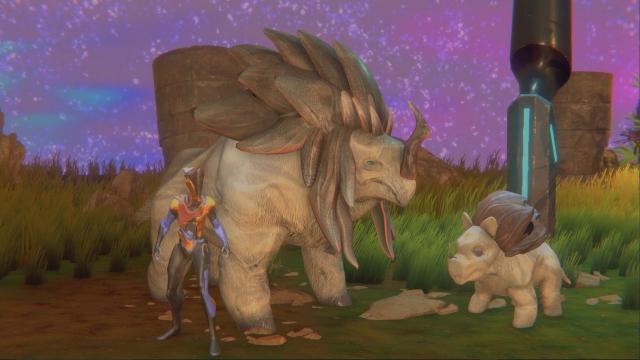
Both in expanding Heart Shaped Games' previous scope and integrating wildlife conservation within its mechanics, We Are The Caretakers earns some earnest applause. There’s a neat behind-the-scenes story to appreciate (such as donating 10% of proceeds to charity) and that fervent inspiration has led to some visually and mechanically creative avenues for this genre. But goodwill and interesting nuances alone can’t carry you to the finish line. From presentation to design, it can’t escape feeling as though it prematurely left Early Access. An earnest, spirited vision won’t get you far without stronger execution.
Contractor by trade and writer by hobby, Lee's obnoxious criticisms have found a way to be featured across several gaming sites: N4G, VGChartz, Gaming Nexus, DarkStation, and TechRaptor! He started gaming in the mid-90s and has had the privilege in playing many games across a plethora of platforms. Reader warning: each click given to his articles only helps to inflate his Texas-sized ego. Proceed with caution.









